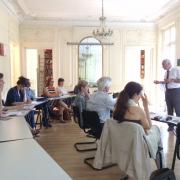
Mr Nico van Opstal (the Netherlands), President of the Association, specified the importance for the attachés in charge of agricultural issues to better understand international organisations and that it was necessary to develop this type of direct relationship.
Mr Jean-Marie Aurand, who has been assigned to Madrid as an agricultural attaché during his career, emphasised the relay work carried out by the ambassadors in addition to their role in promoting the viticultural realities of their country. He indicated that he wished for this initiative to be updated and expanded.
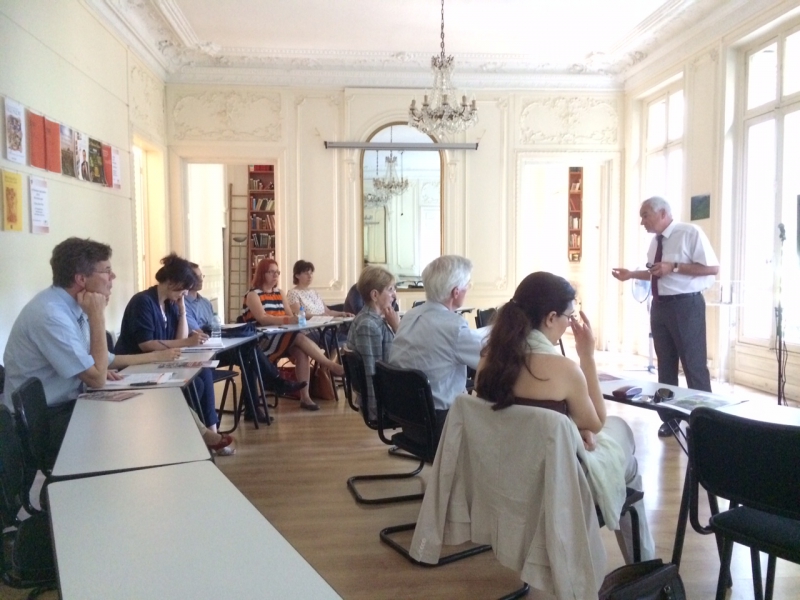
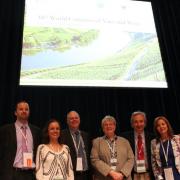
Monika Christmann elected as President
Having been involved in the activities of the OIV for around 20 years, Prof. Dr. Christmann was unanimously elected by the States present. An oenology teacher and researcher at the Geisenheim Research Institute, she was formerly President of the OIV "Oenology" Commission and OIV Vice-President for 3 years, after being elected by the Scientific and Technical Committee.
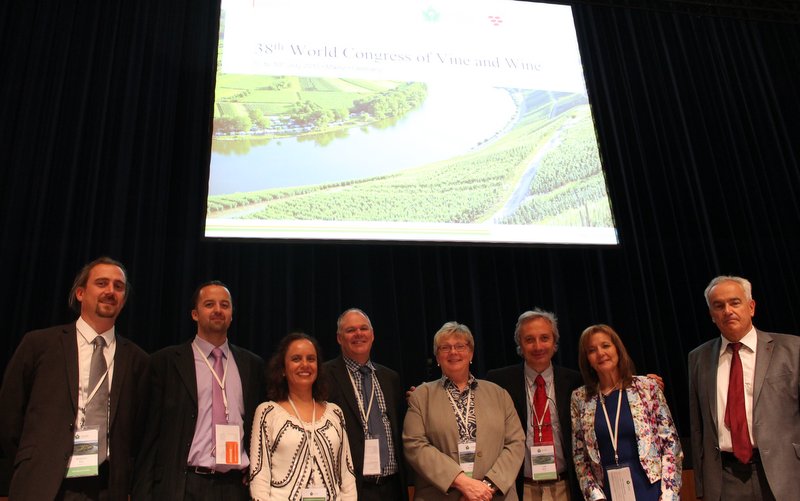
Monika Christmann will be supported in her new role by a new Steering Committee, since the General Assembly also elected the following as:
President of the "Viticulture" Commission: Benjamin Bois (France)
President of the "Oenology" Commission: Luigi Moio (Italy)
President of the "Economy and Law" Commission: Tony Battaglene (Australia)
President of the “Nutrition and Health” Commission: Nuria García Tejedor (Spain)
President of the "Methods of Analysis" Sub-Commission: Ondrej Mikeš (Czech Republic)
President of the "Table Grapes, Raisins and Unfermented Vine Products" Sub-Commission: Luis Peres de Sousa (Portugal)
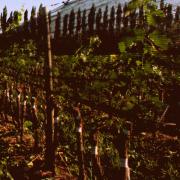
Grapevine trunk diseases (GTD) have become a real problem during the last years.
OIV also, has started up again the work in this sense according to its Strategic plan and work program, which first action was settled down in 2006 (VITI 02/2006 resolution) but some actions are needed nowadays in order to complete this resolution about preventive measures.
It is important to underline that this topic is evaluated by several initiatives and actions developed at national or international level.
The OIV Secretariat general has wished to elaborate a document underlying the importance of this topic, the ongoing works and the need for an international cooperation.
Download document (in English)

A winegrower and a pro-European, he presided over the German Winegrowers' Association (DWV) for many years. He was also Vice-President of the Assembly of European Wine-producing Regions (AREV) and President of the Centre International de Liaison des Organismes de Promotion des Vins (CILOP).
A member of the German delegation to the OIV, he was President and then Vice-President of the Organisation's "Economy and Law" Commission between 2000 and 2006.
The OIV shares in the grief of his family and friends, and pays tribute to a leading figure in the international wine sector.
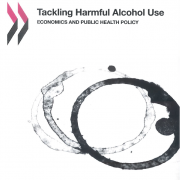
This book provides a detailed examination of trends and social disparities in alcohol consumption. It offers a wide-ranging assessment of the health, social and economic impacts of key policy options for tackling alcohol-related harms in three OECD countries (Canada, the Czech Republic and Germany), extracting relevant policy messages for a broader set of countries.
This book is divided in 6 Chapters
Chapter 1. Alcohol: The public health side of a social phenomenon
Chapter 2. Trends in alcohol consumption in OECD countries
Chapter 3. Social disparities in alcohol drinking
Chapter 4. Tackling alcohol-related harms: What policy approaches?
Chapter 5. Health and economic impacts of key alcohol policy options
Chapter 6. Alcohol, the individual and society: A caIl for coherent alcohol policies
Read the OECD Report: Sassi, F.(ed.) (2015), Tackling Harmful Alcohol Use: Economics and Public Health Policy, OECD Publishing, Paris.